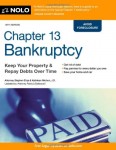Most Viewed Videos
As their children grow up parents face increasing need to develop and guide their wise formal use of money. In the teen years, acquiring a credit card is a first foray. Then purchasing a first auto comes along. As post-secondary education nears, student loans arise. Graduation moves a better auto and a first condo or home purchase to the horizon. Increasing complexity and monetary magnitude of loan needs can be a scary challenge for people relatively new to debt.
Debt is a 4-Letter Word, but it need not be! is a book series that helps parents and young people to effectively maneuver through first-time debt worries. In The College Experience the reader walks along as a fictionalized Dad and daughter go through her independent need for a credit card for ongoing college expenses, financing her college dreams, considering graduate school, and planning for post-graduation repayment of student loans. One observes Dad’s caring teaching path; taken atop informed, strategic borrowing strategies he shares and uses as they make important decisions and take vital steps together. You see a parent become less and less overseeing and a daughter more and more self-reliant.
Debt is a 4-Letter Word, but it need not be! The College Experience volume includes:
• 20 LESSONS about typical college-related debt needs young families face
• 42 detailed hypothetical SITUATIONS numerically covering borrowing circumstances commonly encountered in real life college experiences
• Step-by-step explanation of needed calculation techniques
• 39 easy-to-do EXERCISES for the reader to try the illustrated calculation methods
• Table-based aids to simplify/expedite applying the detailed calculations procedures
While pragmatic and detailed, the book is written in a fun, narrative style so the reader will enjoy learning what otherwise might be unexciting financial matters.
For a free informational series (called “Seven Steps”) on what to do if the debt collectors sue you, go to https://yourlegallegup.com/pages/sued_for_debt_action_steps. It’s free and informative, and there’s no obligation. Along with the companion article at http://yourlegallegup.com/pages/Mediation, this video helps the pro se defendant prepare for mediation. warns of pitfalls that could cause you to lose your shirt in mediation and shows you how to come out ahead. Explains how the mediation process works, how the mediator will probably run the session and what he or she will say, and even what the debt collector’s lawyer is probably going to say. This video tells you exactly what to expect so you can prepare for some of the pressures you’re going to feel without being surprised by them. Don’t Lose Your Shirt in Mediation! http://youtu.be/fBcs7OrNfOU. Your Legal Leg Up is a website and business designed to help ordinary people defend themselves from debt collectors before or during a lawsuit. Many debt collectors rely on unethical and unfair collections methods that violate the Fair Debt Collection Practices Act (FDCPA), which is the first and best source of debtor rights, among other laws.
What makes everybody have a good chance against a debt collector is simply the way the debt collection business works. Junk debt buyers buy huge “tranches” or “portfolios” of debt — sometimes many millions of dollars of “nominal” debt at a time. “Nominal” debt means that is the amount that is theoretically owed, although the companies selling it, like the companies buying it, “discount” the value of debt depending on how long it has been in default (or based on other risk factors). Debt collectors buy huge amounts of the riskiest debt for pennies on the dollar.
Then they harass and dun the people who supposedly owe the money for a while, and then they file suit, often against dozens or hundreds of people at a time. Because the debt collectors are doing everything in “bulk,” they cannot really spend much time on individual cases. If you fight them, therefore, you have an excellent chance to make them go away — it’s simply too profitable for them to pursue the many who do not fight rather than the few who do.
If you hire a lawyer to fight for you, they are more likely to drop your case faster, but if you fight them intelligently even without a lawyer you will have an excellent chance to win the suit on your own. And this, again, is because every time you file a pleading, a motion, or discovery, or pursue any of your rights or potentials in the lawsuit, and every time you force the debt collector to appear in court, you are costing them money — money they hate to spend on you when there are so many others who won’t fight.
As Europe began to grow rich during the Middle Ages, its wealth materialized in the well-made clothes, linens, and wares of ordinary households. Such items were indicators of one’s station in life in a society accustomed to reading visible signs of rank. In a world without banking, household goods became valuable commodities that often substituted for hard currency. Pawnbrokers and resellers sprang up, helping to push these goods into circulation. Simultaneously, a harshly coercive legal system developed to ensure that debtors paid their due.
Focusing on the Mediterranean cities of Marseille and Lucca, Legal Plunder explores how the newfound wealth embodied in household goods shaped the beginnings of a modern consumer economy in late medieval Europe. The vigorous trade in goods that grew up in the fourteenth and fifteenth centuries entangled households in complex relationships of credit and debt, and one of the most common activities of law courts during the period was debt recovery. Sergeants of the law were empowered to march into debtors’ homes and seize belongings equal in value to the debt owed. These officials were agents of a predatory economy, cogs in a political machinery of state-sponsored plunder.
As Daniel Smail shows, the records of medieval European law courts offer some of the most vivid descriptions of material culture in this period, providing insights into the lives of men and women on the cusp of modern capitalism. Then as now, money and value were implicated in questions of power and patterns of violence.
This plain-English guide to decide if Chapter 13 is right for you and to learn how to keep valuable property and discharge your unsecured debts.
Chapter 13 legal concepts, procedures, and monetary calculations can be tricky. Nolo’s Chapter 13 Bankruptcy breaks down the Chapter 13 process and provides clear explanations of the law so you can:
. consider alternatives to bankruptcy
. decide which is better for you — Chapter 7 or Chapter 13
. determine if you qualify for Chapter 13
. understand bankruptcy’s automatic stay
. learn how Chapter 13 can help avoid foreclosure
. find out if you can reduce your car loan balance, or the balance on other secured debts
. determine if you can strip second mortgages or home equity lines from your home
. calculate (with forms and step-by-step instructions) whether you have enough income to propose a repayment plan that will meet legal requirements
. calculate the amount of your monthly plan payment
. find and work effectively with an excellent lawyer, and
. rebuild your credit after bankruptcy
This newest edition includes new information on hiring and working with a lawyer, recent U.S. Supreme Court and other federal court decisions interpreting bankruptcy law, the latest bankruptcy exemption laws in your state, and recent IRS standard expense amounts (which play a role in plan payments).
This book does not cover business bankruptcies, farm reorganizations, or Chapter 7 personal bankruptcy. See Nolo’s How to File for Chapter 7 Bankruptcy.
Coming soon! A Debt Paid in the Marriage Bed by Jennifer Hayward will be available Feb 21, 2017.
National Debt Mediation Association CEO, Magauta Mphahlele, discusses debt traps.
Visit us online by going to https://www.debtreview-sa.co.za/
English:
Debt Review is a process in terms of the National Credit Act for over indebted consumers. The purpose of the act is to protect the over indebted consumer against Credit providers.
The first step in the process is to get the help from a debt counsellor and we do recommend that you do work with a company that has a NCR number and thus is registered with the NCR.
Afrikaans:
Skuldberading is basies die afrikaanse terme vir”debt review” of “debt counselling” en ons gaan onder net n oorsig gee en voel asb vry om ons te kontak met enige vrae of vir meer inligting. Ons afrikaans sprekende konsultante sal met graagte help.
Skuldberading is die proses in terme van die Nasionale Krediet Reguleerder (NKR) vir verbruikers wat in die skuld is. Die rede vir die proses is vir beskerming van die verbruikers, teen krediet verskaffers.
If you’ve been harassed by Professional Debt Mediation, we can help. We can turn the tables on debt collectors and make them pay you. Call us today at 844-685-9100 for a free, no obligation case evaluation, or visit http://www.hatecalls.com
******
Attorney Advertising – This is Not Legal Advice
Sergei Lemberg, Esq. is the Connecticut Attorney responsible for this advertisement.
Consumers should not assume that they are entitled to any compensation as a result of bringing a claim. Any compensation and any results obtained would depend upon specific factual and legal circumstances of each case.










